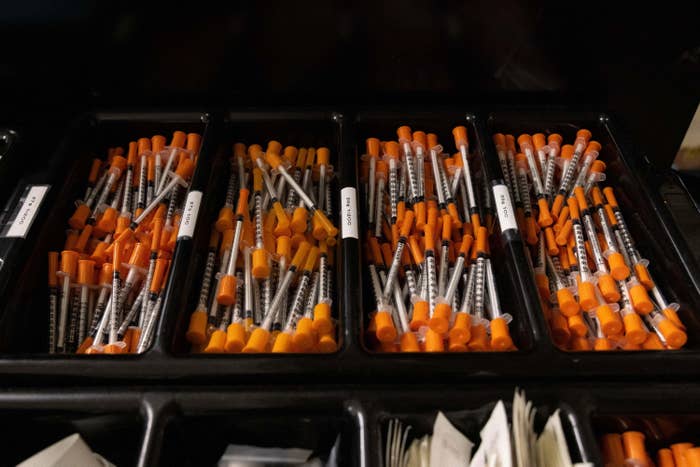
Two weeks ago, New York City became the first city in the nation to open two overdose prevention centers, located in Manhattan. Already, 25 overdoses have been averted — 25 people who are alive today thanks to these centers. Now we are calling on the Biden administration to formally authorize overdose prevention centers in the US.
Overdose prevention centers are supervised, hygienic spaces for people who use drugs to do so safely, while also providing harm reduction, physical health, and behavioral health services.
Every neighborhood in every community has experienced the tragedy of the overdose epidemic. Nationally, over 100,000 Americans died of an overdose between April 2020 to April 2021. In New York City, 2,062 people died of an overdose in 2020, the highest number of deaths since reporting began 20 years ago. The spread of fentanyl — a dangerous, synthetic opioid 80 to 100 times stronger than morphine and the primary driver of the rise in overdoses — exponentially increases the need for even more overdose prevention innovation.
Thirty years of research conducted across 100 sites on three continents has demonstrated the efficacy of overdose prevention centers. There has never been a single overdose death at any site. Participants are provided with basic human needs day after day: a smile, a sandwich, or a shower. Over time, trust is built between participants and clinical staff, which leads to participants beginning substance use disorder treatment and referrals to healthcare and other social services.
In addition, research shows overdose prevention centers reduce public drug use, syringe litter, and drug-related crime in surrounding neighborhoods. They can also function as safe havens for women who use drugs, reducing violence against women associated with street-based substance use.
We believe the overdose prevention centers in New York City will be a model for other cities to follow.
Biden recently embraced harm reduction, becoming the first president to include it in his drug policy priorities.
In another first, Congress appropriated $30 million in the American Rescue Plan to be provided to state, local, and tribal governments and organizations for overdose prevention and harm reduction services.
State governments are also supporting the approach, with Rhode Island legalizing a two-year pilot of overdose prevention centers and other states introducing bills supporting the operation.
This is not enough. Significant legal obstacles to widespread operation of overdose prevention centers remain, and the Biden administration has the power to remove them.
Currently, a federal law, the Controlled Substances Act, states that it is illegal to operate, own, or rent a location for the purpose of using illegal substances. In April, New York joined San Francisco, Oakland, Philadelphia, Pittsburgh, and Somerville, Massachusetts, in a letter to Attorney General Merrick Garland requesting he deprioritize enforcement of the Controlled Substances Act against overdose prevention centers. But so far, no action has been taken.
The Department of Justice can also issue a memorandum to federal law enforcement to not prosecute the operators of overdose prevention centers in states and localities that have authorized or supported them.
Last year, an average of 275 Americans died of a drug overdose every day.
It is time to embrace bold strategies in the face of public health crises, even if they may seem radical at first. Thirty years ago, in the midst of the HIV/AIDS epidemic, New York City activists started one of the first syringe service programs in the country and, as a result, reduced HIV transmission among people who inject drugs, averting countless deaths.
We urge the Biden administration to endorse overdose prevention centers, empowering state and local jurisdictions to fully leverage their resources and authority to build healthier and safer cities, towns, and communities.
Dr. Dave A. Chokshi is the Health Commissioner of New York City. Darcel Clark is the Bronx District Attorney, Eric Gonzalez is the Brooklyn District Attorney, Melinda Katz is the Queens District Attorney, and Cy Vance is the Manhattan District Attorney.




